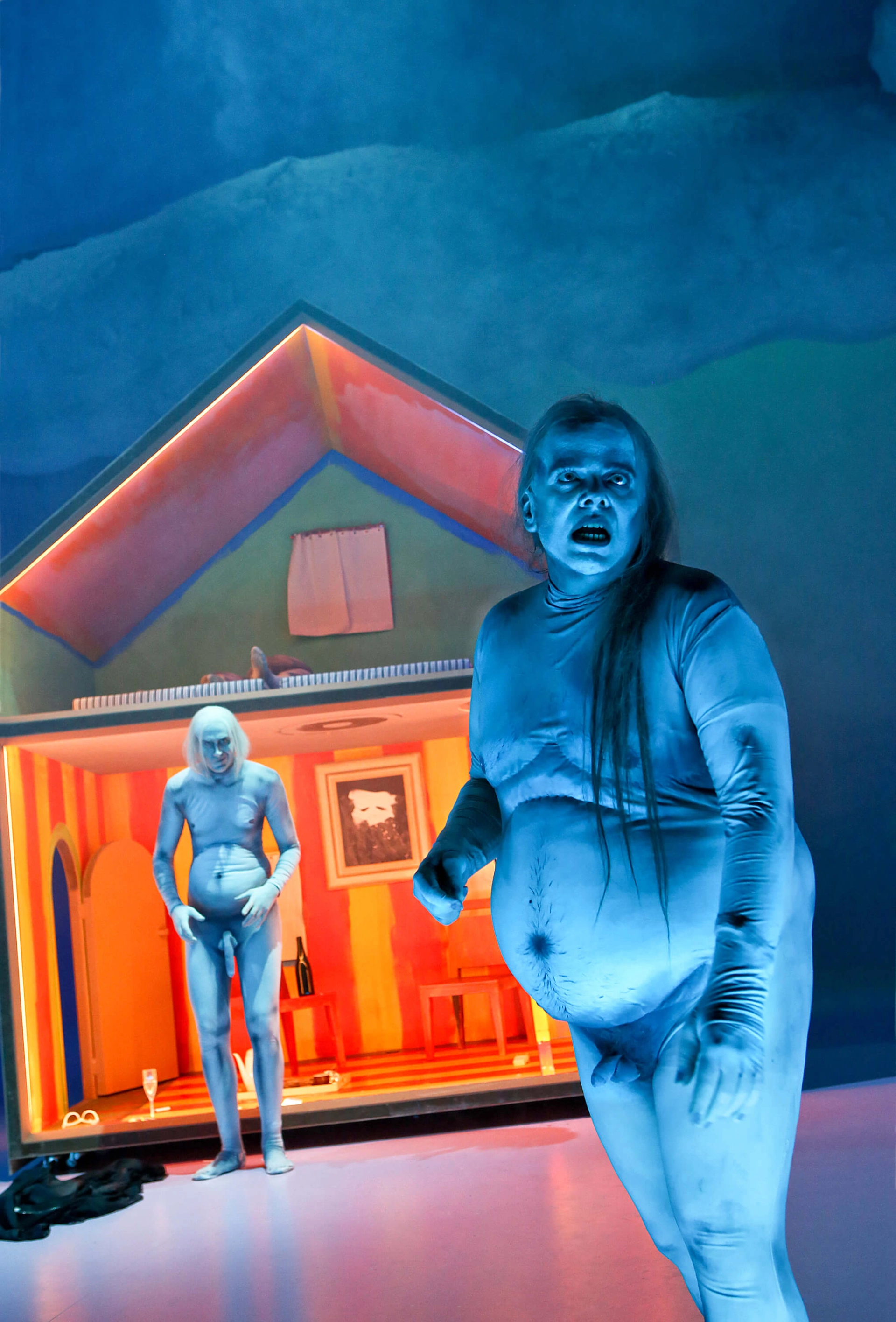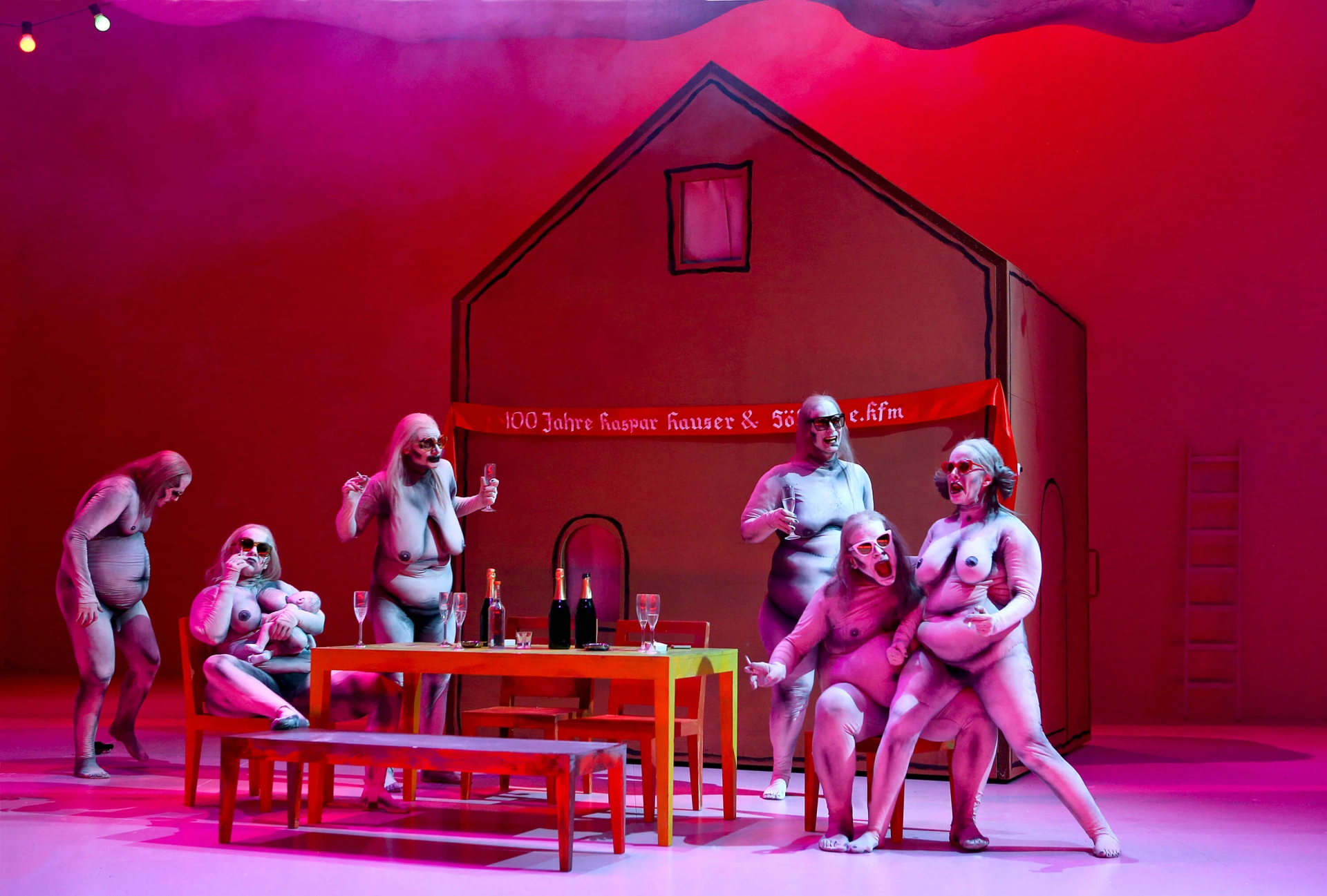Kaspar Hauser und Söhne











Trailer
Team
Written by
Olga Bach
Director, Stage design, Costumes
Ersan Mondtag
Collaborator stage design, costumes
Anton von Bredow
Music
Max Andrzeijewski
Video
Florian Seufert
Lighting design
Cornelius Hunziker
Dramaturgy
Constanze Kargl
With
Michael Gempart, Vincent Glander, Thiemo Strutzenberger, Urs Peter Halter, Cathrin Störmer, Elias Eilinghoff, Benny Claessens, Carina Braunschmidt
On Whit Monday in 1828, an unsteady, 16-year-old "funny and poodle-like figure" with a rudimentary knowledge of the language appears in Nuremberg and reports that he had been kept in darkness for years without human contact on bread and water, until one day an unknown person threw him into the world.
The enigmatic foundling becomes an attraction: "Kaspar Hauser enjoys hardly less popularity than the kangaroo and the hyena in Mr van Aken's famous menagerie." With great public interest, he rose to become the "Child of Europe" as a curiosity until he died in 1833 under unexplained circumstances. Even after his death, he remained the subject of countless speculations about his origins as well as philosophical, psychological and medical analyses and thus a scientific object."In the 19th century, Kaspar Hauser was forced to accept the categorising view of the world that separates subject and object, to which he himself ultimately fell victim: human science reified him as the object of its research. But what would Kaspar have to suffer from in today's world, in which every endeavour to find the truth is based on an exchange of points of view, at the end of which, at best, an agreement is reached? Techniques of emotionalisation and obfuscation (and thus always the possibility of fraud) are omnipresent and increasingly threaten to replace objective evidence. It is no longer possible to deduce the truth from it because belief in it seems to have been lost." Olga BachErsan Mondtag, who was named Young Director of the Year 2016 by the specialist magazine "Theater heute" and has already been invited to the Berlin Theatertreffen twice, will present his aesthetic cosmos to the Basel audience for the first time.
Photo credits: Birgit Hupfeld
Time
01. April 2018 – 05. March 2019